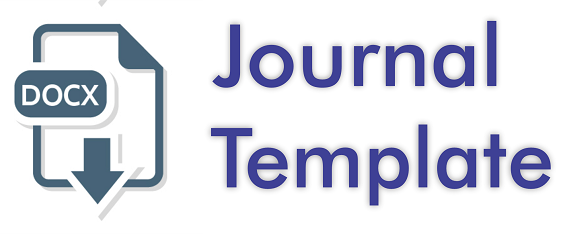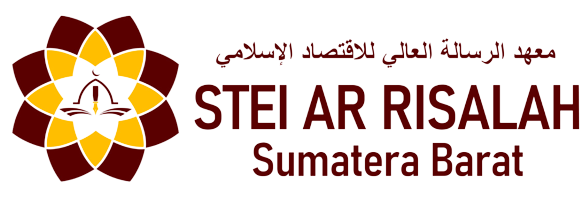Implementation Of Statement Of Financial Accounting Standards (PSAK) 112 In The Financial Statements Of The Assyifa Waqf Agency In Subang District
DOI:
https://doi.org/10.59107/ri.v3i1.64Keywords:
Implementation, SFAS 112, Financial Statements, Assyfa Waqf BoardAbstract
This study investigates the implementation of SFAS 112 in the financial statements of the Assyifa Waqf agency in Subang Regency. Using qualitative research methods, the study aims to accurately describe the agency's financial statements using primary and secondary data. The data collection techniques include literature study, documentation, interviews, and observation. The recognition of waqf assets based on nominal and fair values, and the presentation of financial statements, including statements of financial position, activities, cash flows, and changes in assets under management, are key areas of focus. It is noted that the full implementation of SFAS112 in the Assyifa Waqf Board, particularly in terms of recognition, measurement, presentation, and disclosure of financial statements, has not been achieved. The findings of this study could potentially have a significant impact on the field of Islamic economics and waqf practices, providing valuable insights for future research and practice.
Downloads
References
Adnan, A. (2005). Akuntansi Syariah: Arah, Prospek dan Tantangannya. Universitas Islam Indonesia (UII) Press, 2005.
Ahmad, R. (n.d.). Hukum Perdata Islam di Indonesia (Edisi Revisi. PT. Raja Grafido Persada.
Arrozaq, G. M. (2022). Analisis implementasi PSAK 112 Tentang Akuntansi Wakaf pada Yayasan Mizan Amanah.
Aziz, M. (n.d.). Peran Badan Wakaf Indonesia (BWI) dalam mengembangkan Prospek Wakaf Uang di Indonesia. Jurnal Ekonomi Syariah, 1.
Bagus, L. (2000). Kamus Filsafat.
Bahri, S. (n.d.). Pengantar Akuntansi. CV. Andi Offset.
Chandarin, G. (2017). Metode Riset Akuntansi Pendekatan Kuantitatif, Salemba Empat.
Dahlan, R. (n.d.). Analisis Kelembagaan Badan Wakaf Indonesia. Jurnal Bisnis dan Manajemen.
Dermawan, R. B. (2022). Analisis Penerapan Akuntansi Wakaf Berdasarkan PSAK 112 pada Baitul Maal Muamalat.
Dewi, K., & Amrizal. (2023). Analysis of The Application of Waqf Accounting Standards (PSAK 112).
dkk, S. (n.d.). Draf Eksposur (DE) SFAS 112 : Akuntansi Wakaf. Dewan Standar Akuntansi Syariah IAI.
Dr. Muhammad Ramdhan, S. Pd. , M. M. (2021). Metode Penelitian. Cipta Media Nusantara.
Fikri, M. C. (2020). Analisis Penerapan Akuntansi Wakaf Berdasarkan PSAK No. 112: Studi kasus pada Koperasi Masjid Sabilillah Kota Malang.
Grediani, E. (2022). Akuntansi Syariah Pengantar.
Halim, A. (n.d.). Hukum Perwakafan di Indonesia. Ciputat Press.
Harahap, S. S. (1997). Akuntansi Islam / Sofyan Syafri Harahap. Jakarta : Bumi Aksara, 1997.
Hujriman, M. H. (n.d.). Hukum Perwakafan di Indonesia : Suatu Pengantar : Buku Ajar (Edisi 1, April 2018). Yogyakarta : Deepublish 2018 Hak Cipta 2018, pada penulis.
Islamiyah, U. H. (2020). Implementasi PSAK 112 pada Nazhir Universitas Airlangga.
Islamiyah, U. N. (n.d.). Implementasi SFAS 112 pada nazhir Universitas Airlangga.
Kasdi, A. (n.d.). Peran Nadzir dalam pengembangan Wakaf. Jurnal Zakat dan Wakaf.
Khaddafi, M., Siregar, S., Harmain, H., Nurlaila, Zaki, M., & Dafrani. (2016). Akuntansi Syariah : meletakkan nilai-nilai Syariah Islam dalam Ilmu Akuntansi (Ikhsan Arfan, Ed.). Madenatera.
Khoerudin, A. N. (2018). Tujuan dan Fungsi Wakaf Menurut Para Ulama dan Undang-Undang di Indonesia.
Khosyi’ah, S. (2010). Wakaf & Hibah (Perspektif Ulama Fiqh dan Perkembangannya di Indonesia). CV. Pustaka Setia, Bandung.
Kurlaili, A. (2019). MENGUNGKAP KONSEP AKUNTANSI DALAM PERSPEKTIF SYARIAH ISLAM.
Latifah, M. J., & Noor, A. F. (n.d.). Analisis Pelaksanaan Wakaf di Kuwait. Jurnal Zakat dan Wakaf.
Mardani. (2016). Hukum Islam : Zakat, Infak, Sedekah, dan Wakaf : (Konsep Islam Mengentaskan Kemiskinan dan Mensejahterahkan Umat). Bandung : Citra Aditya Bakti, 2016.
M.Azmi, & Suryadi, N. (2022). ANALISISiPENERAPAN AKUNTANSIi WAKAF BERDASARKAN PSAK 112 PADA BADAN WAKAF INDONESIA PERWAKILAN PROVINSI RIAU. 1.
Muhammad. (2005). Pengantar Akuntansi Syariah (Edisi 2). Salemba Empat.
Pratama, B. C., Setiawiani, I. G., Fatimah, S., & Felani, H. (2017). Penerapan Praktek dan Teori Akuntansi Syariah Berdasarkan Prinsip Syariah. Akuisisi: Jurnal Akuntansi, 13(2). https://doi.org/10.24127/akuisisi.v13i2.181
Puspaningtyas, L., & Yolandha, F. (2021). BWI Luncurkan Indeks Wakaf Nasional.
Putri, N. N. E., & B, S. C. (n.d.). Analisa Penerapan SFAS 112 Tentang Transaksi Wakaf Terhadap Penerimaan, Pengelolaan dan Pengembangan Aset Wakaf Studi Kasus Pada Badan Wakaf Indonesia Kota Batam. Measurement, 13(2 : 1-10), 9.
Putri, N. N. eka, & Santoso, C. B. (2019). Analisa Penerapan Psak 112 Tentang Transaksi Wakaf Terhadap Penerimaan, Pengelolaan dan Pengembangan Aset Wakaf Studi Kasus Pada Badan Wakaf Indonesia Kota Batam. Measurement : Jurnal Akuntansi, 13(2), 74. https://doi.org/10.33373/mja.v13i2.2032
Rozalinda. (2016). Manajemen Wakaf Produktif (Cetakan 2, 2016). Rajawalil Pers, RajaGrafindo Persada, 2016 .
Salman, M. A. (n.d.). Pemahaman Nazhir dan Penerapan Sistem Akuntansi Wakaf Berdasarkan SFAS 112. Jurnal Ilmiah Ekonomi Islam.
Setiawan, I. (n.d.). Perbandingan Laporan Keuangan Konvensional dan Syariah. In Jurnal AKSY (pp. 172–185).
Standar Akuntansi Keuangan Syariah. (1970). Standar Akuntansi Keuangan Syariah. Ikatan Akuntan Indonesia.
Sudirman. (2013). TQM untuk Wakaf.
Sugiyono. (2012). Metode Penelitian Bisnis.
Sugiyono. (2021). Metode Penelitian Kuantitatif, Kualitatif, dan R&D (Cetakan Ke-3, 2021). Alfabeta, 2021.
Veithzal Rivai Zainal. (2016). 1PENGELOLAAN DAN PENGEMBANGAN WAKAF PRODUKTIF. 9, 1–16.
Downloads
Published
Issue
Section
License
Copyright (c) 2024 RISALAH IQTISADIYAH: Journal of Sharia Economics

This work is licensed under a Creative Commons Attribution 4.0 International License.
License
The non-commercial use of the article will be governed by the Creative Commons Attribution license as currently displayed on http://creativecommons.org/licenses/by/4.0/. This licence allows the user to distribute, remix, tweak, and build upon the licensed work, including for commercial purposes, as long as the original author is credited.
Author’s Warranties
The author warrants that the article is original, written by stated author/s, has not been published before, contains no unlawful statements, does not infringe the rights of others, is subject to copyright that is vested exclusively in the author and free of any third party rights, and that any necessary written permissions to quote from other sources have been obtained by the author/s.
User Rights
Under the Creative Commons Attribution license, the author(s) and users are free to share (copy, distribute and transmit the contribution).
Rights of Authors
Authors retain the following rights:
- copyright, and other proprietary rights relating to the article, such as patent rights,
- the right to use the substance of the article in future own works, including lectures and books,
- the right to reproduce the article for own purposes, provided the copies are not offered for sale,
- the right to self-archive the article.
Co-Authorship
If the article was prepared jointly with other authors, the signatory of this form warrants that he/she has been authorized by all co-authors to sign this agreement on their behalf, and agrees to inform his/her co-authors of the terms of this agreement.
Termination
This agreement can be terminated by the author or RISALAH IQTISADIYAH: JOURNAL OF SHARIA ECONOMICS upon two months’ notice where the other party has materially breached this agreement and failed to remedy such breach within a month of being given the terminating party’s notice requesting such breach to be remedied. No breach or violation of this agreement will cause this agreement or any license granted in it to terminate automatically or affect the definition of RISALAH IQTISADIYAH: JOURNAL OF SHARIA ECONOMICS.
Royalties
This agreement entitles the author to no royalties or other fees. To such extent as legally permissible, the author waives his or her right to collect royalties relative to the article in respect of any use of the article by RISALAH IQTISADIYAH: JOURNAL OF SHARIA ECONOMICS or its sublicensee.
Miscellaneous
RISALAH IQTISADIYAH: JOURNAL OF SHARIA ECONOMICS will publish the article (or have it published) in the Journal, if the article’s editorial process is successfully completed and RISALAH IQTISADIYAH: JOURNAL OF SHARIA ECONOMICS or its sublicensee has become obligated to have the article published. RISALAH IQTISADIYAH: JOURNAL OF SHARIA ECONOMICS may conform the article to a style of punctuation, spelling, capitalization and usage that it deems appropriate. The author acknowledges that the article may be published so that it will be publicly accessible and such access will be free of charge for the readers. RISALAH IQTISADIYAH: JOURNAL OF SHARIA ECONOMICS will be allowed to sublicense the rights that are licensed to it under this agreement.


.png)
.png)






